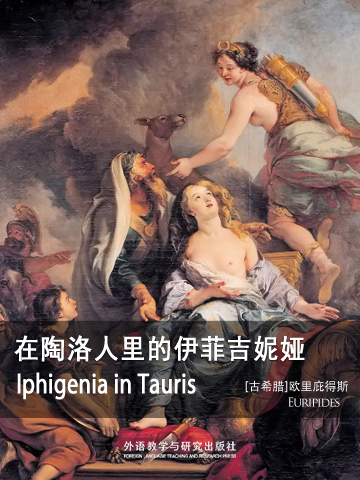Iphigenia in Tauris tells the story of the princess Iphigenia who was sacrificed by her father Agamemnon to expedite his campaign against Troy but was rescued by the goddess Artemis and transported to the land of the Taurians. There she herself must perform human sacrifices as a priestess of Artemis in the local cult. Troy has now been sacked, and Agamemnon murdered by his wife and avenged by his son Orestes. With his motherAes blood on his hands, Orestes is guided by Apollo to seek purification through bringing the image of the Tauric Artemis to Greece, and so is reunited with his sister. The drama centers on IphigeniaAes near-sacrifice at OrestesAe hands, their recognition in the nick of time, and their ingenious and thrilling escape to bring the cult of Artemis to Halae and Brauron near Athens.
《在陶洛人里的伊菲吉妮娅》是剧作家欧里庇得斯的一部作品,写于公元前414年和412年间。这部剧和欧里庇得斯的另一部剧《海伦》有许多相同之处,通常被认为是一部传奇剧,情节剧或者悲喜剧。
Iphigenia in Tauris is a drama by the playwright Euripides, written between 414 BC and 412 BC. It has much in common with another of Euripides’s plays, Helen, as well as the lost play Andromeda, and is often described as a romance, a melodrama, a tragi-comedy or an escape play.
- IPHIGENIA IN TAURIS
- 书评 写书评
- 笔记
-
书评加载中...













 京公网安备 11010802032529号
京公网安备 11010802032529号
笔记加载中...